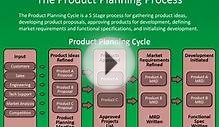
The business plan process is simply the steps you go through and actions you take when producing a business plan. In effect, it describes how you produce your business plan. While most people focus on the ‘final output’, i.e. the business plan itself, the business planning process is extremely important for entrepreneurs.
The process of producing a business plan forces entrepreneurs to examine areas of their business that typically may not be subject to much scrutiny. For example, entrepreneurs do not tend to routinely produce cash flow forecasts, so the requirement to produce one as part of the business planning process forces them to consider the impact of cash on their business.
The business plan process typically begins with an event, be it the need to produce a business plan when seeking investment, or to obtain short-term financing from a bank. Once a business plan is needed, the entrepreneur has to then decide how they are going to go about producing the plan. They will need to undertake the following:
- Decide who is going to write the plan (if not themselves).
- Gain an understanding of what a business plan contains.
- Decide how to write their plan (typically using business planning software such as Business Plan Pro).
- Ensure that they know the content for the various sections of the business plan.
- Collaborate with partners or with colleagues from various departments (if the plan is for a bigger firm).
- Make sure the financials are realistic and accurate.
- Have someone review the plan.
- Print and bind the plan (if a formal document is needed) and/ or produce a presentation.
- Submit the plan to the recipient.
- Update the business plan as new details emerge.
The great thing about the business plan process is that it forces the entrepreneur to consider their company holistically, as well as forcing them to consider their future, rather than merely the present day-to-day operations. Entrepreneurs who have spent the time thinking about seasonality in their sales forecasts, the implications of ordering and storing large amounts of inventory, or the short-term drop in productivity that comes with new hires, are less likely to be caught unawares by sudden cash shortfalls and other typical business challenges.
INTERESTING VIDEO














